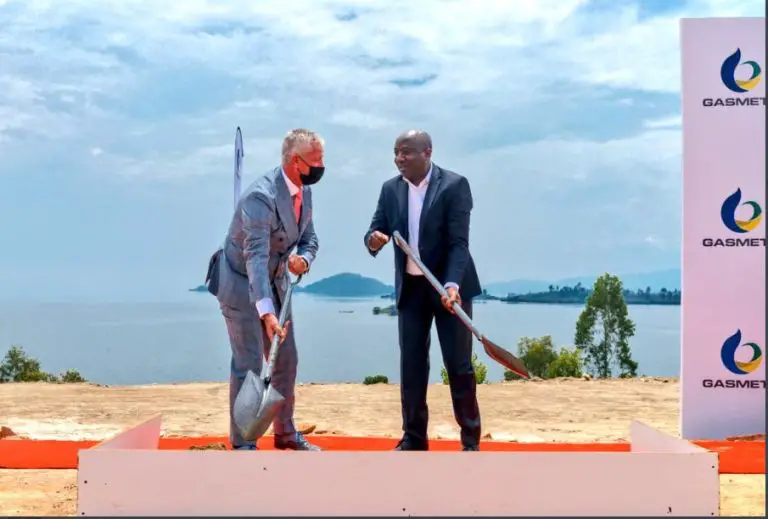The construction of a compressed natural gas plant in Bwishyura, Karongi district, on the shores of Lake Kivu, was inaugurated recently by Rwandan Prime Minister Edouard Ngirente.
AfreximBank will finance it at a cost of $530 million, according to estimations.
Read also:Plans Underway for Construction of First Cooking Gas Plant in Rwanda
An international company that specializes in financing gas development projects and designing technical and operational capability to build as well as deliver gas projects in an efficient, safe, and environmentally friendly way, among other things, will carry out the project.
Rwanda and Gasmeth Energy signed a $400 million agreement in February 2019 to extract and convert methane into compressed natural gas (CNG) for use in automobiles, industries, and cooking.
What caused the delay of the natural gas plant in Bwishyura?
However, a number of issues, such as the COVID-19 pandemic outbreak, caused a delay.
Construction of an offshore gas extraction facility, as well as onshore gas processing and CNG compression plants, are all part of the compressed natural gas plant in Bwishyura.
The Ministry of Infrastructure estimates that the demand for LPG will increase from 10,000 tonnes in 2017 to more than 240,000 tonnes by 2024.
Rwanda intends to cut its biomass consumption from 79% in 2017 to 42% in 2024.
By 2030, the government’s goal of reducing charcoal will require an investment of $1.37 billion in total.
It is expected that the $400 million investment will create between 600 and 800 construction-related jobs, as well as 400 post-construction jobs.
The Government of Rwanda awarded Gasmeth Energy Ltd. signed a 25-year concession agreement to extract methane gas from Lake Kivu in the Karongi district of Western Province.
After two years of looking for funding partners, CEO Stephen Tierney stated that they are excited to start the project’s next phase.
The compressed natural gas plant in Bwishyura intends to provide a long-term, environmentally sound, and cost-effective source of domestic gas.
Gasoline, diesel fuel, peat, coal, wood, and LPG will all be replaced by compressed natural gas (CNG).
Rwanda’s transportation, industrial, domestic, and power generation sectors will be the primary consumers of the gas, and it will also be eventually exported.
In the near future, Tierney said, his company expects to produce 14 million cubic feet of gas per day, but they will start with 13.4 million.
The plant is expected to offer a new energy source for domestic use, according to PM Ngirente, who welcomed the investment.

Leave a Reply